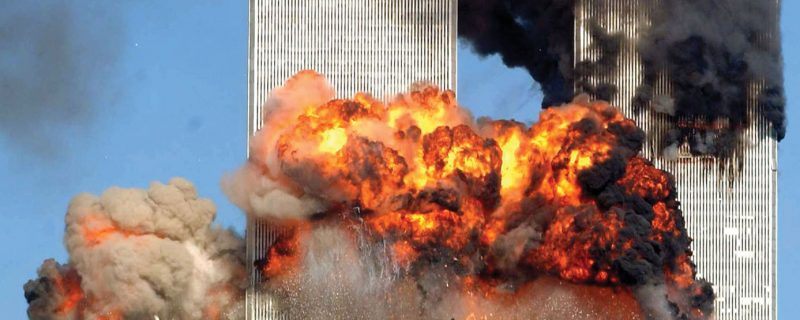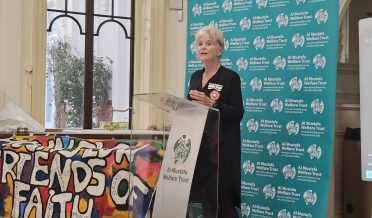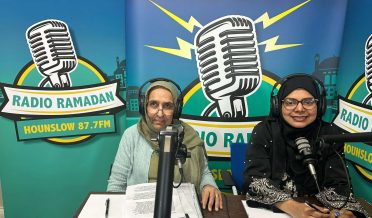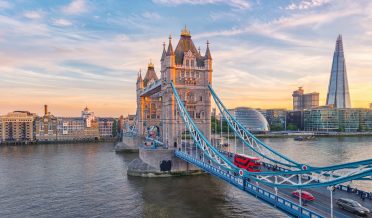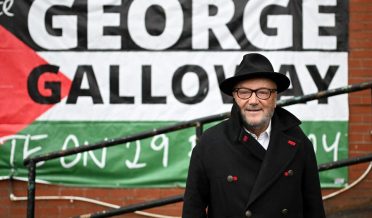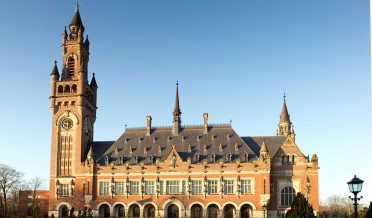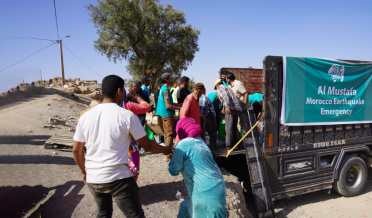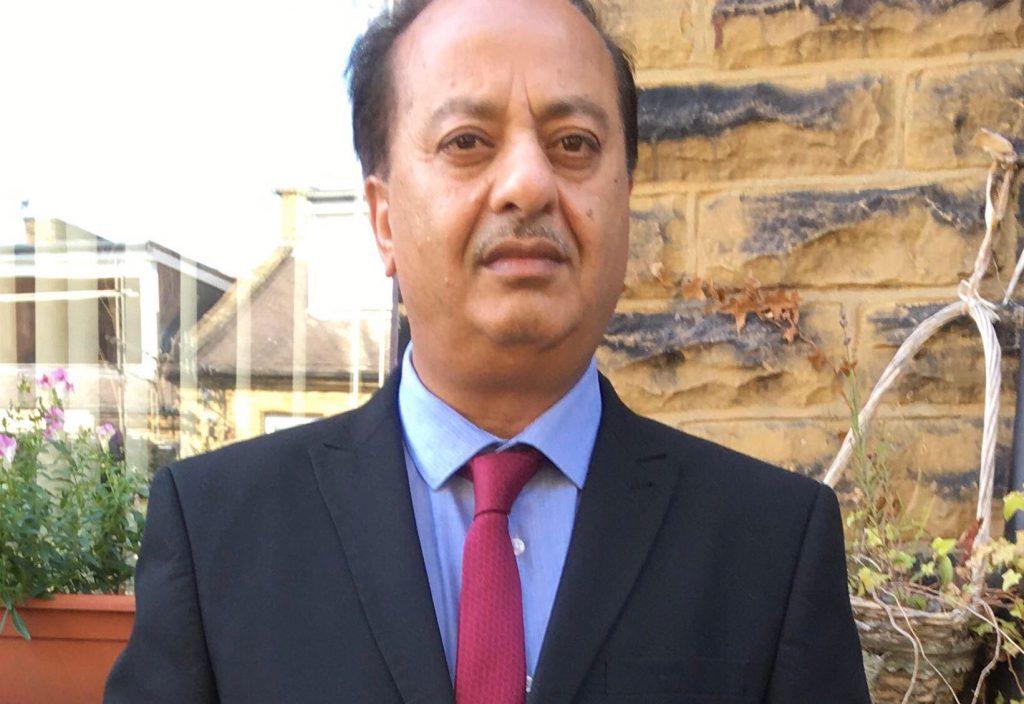
Bradford, U.K.
On the 11th of September 2001, the World Trade Centre in New York and the USA Military HQ ( The Pentagon) were the target of a premeditated terrorist attack , tragically killing 3000 people. It involved crashing of three highjacked airliners into these icons of the American economic and military might by the elements sympathetic to Al-Qaeda.This date is commemorated and referenced as 9/11.
There are countless so called conspiracy theories and explanations of what and why the 9/11 happened and who actually was responsible for the catastrophic sequence of this tragic atrocity , including the far fetched suggestion that could it could have been stage managed.
The fact that 3000 civilian lives were lost is a cause for sadness and not for any justification of what had happened on this tragic day. Whatever the reasons , there should never be any legitimacy given to taking of life , whatever the grievance. Acts of violence should never be condoned.
Although, Asama Bin Laden initially denied any involvement in the 9/11 attack but later in 2004 claimed the responsibility and cited US support for Israel, It’s presence in Saudia and sanctions against Iraq being the principal motivation for the attack.
With the disintegration of Soviet Union in the ( 1988 -91) and the China still evolving, it left USA unchallenged in its economic and military might, giving it the belief that it could roughshod any part of the globe unhindered. Being also the biggest paymaster for the NATO and the United Nations, further , accentuated USA’s sense of impregnability.
The World Trade Centre and the Pentagon ( the US Military HQ) , represented the two mightiest arms of the American juggernaut. Hence, it is not beyond the realms of possibility that one of the key objectives of the 9/11 attackers was to serve USA a powerful notice that their wall of home invincibility was not totally impenetrable. It was an emphatic message of intent served on Americans that they can’t expect to live in peace in the comfort of their homes whilst their country belligerently trotted around the globe inflicting havoc on millions.
Whatever the reasons and the context for 9/11 , the fact that it was perpetrated by the Muslim elements, it provided a powerful pretext for USA led military interventions in the Muslim world.
Using the incident, America was able to galvanise the western powers to instigate its infamous ‘ war on terror’ , in order to counter the potential threat to the peace and stability of the western nations , posed particularly by the ‘ Islamist’ terrorist organisations. To accomplish this objective, the term “ axis of evil “ was coined by the President George W. Bush , in his State of the Union address on January 29, 2002, less than five months after the 9/11attacks to create a scenario for taking the fight against the ‘ Islamist terrorists’ to their home bases.
This became the pretext for identifying those countries that were deemed as being engaged in sponsoring terrorism and amassing the weapons of mass destruction. President Bush unashamedly pinpointed the ‘common enemies’ of the United States in order to rally the American public and the Western nations around his’ war on terror’. This became a powerful component of US foreign policy allowing it to identify and target countries deemed as ‘ rogue states’ , involved in sponsoring terrorist activities.
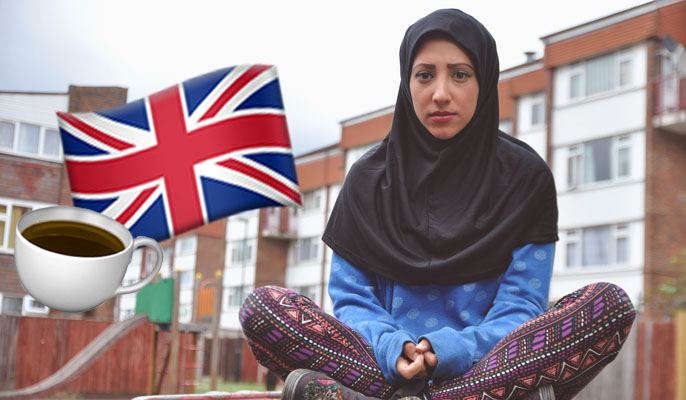
In particular, the war on terror identified and targeted Iran, Ba’ atheist Iraq, Syria and North Koria. Afghanistan soon was added as the principal target after 9/11 for the American led invasion when Talibans refused to handover Asama Bin Laden, the leader of Al- Qaeda, to the American authorities.
Pakistan did not also escape the ‘ war on terror’ onslaught. It’s longstanding role in receiving and supporting the Afghani refugees , firstly during and in the aftermath of the Russian invasion and than throughout American led invasion and occupation throughout the last twenty years. In the first case, Pakistan was accused and condemned by the Russians for receiving and supporting the Afghan refugees in their struggle to free their land of the Soviet Union occupation. In the latter case, Pakistan was accused of hiding and protecting the Talibans so much so that Americans saw it legitimate to subject Pakistan to their indiscriminate drone attacks.
Although, Pakistan vehemently refuted the allegations thrown at it by the American allies including U.K , It’s cause in the international community was also not helped by the frequent incidents of sectarian violence at home. This and the discovery of Asama Bin Laden in Pakistan did nothing to help Pakistan to restore it’s integrity and standing in the international circles whilst also playing into the hands of India, Pakistan’s longstanding opponent , ceasing on every opportunity to blame and malign Pakistan in the international arenas.
This association of Pakistan with harbouring of terrorist and religious extremist elements , heavily contributed to creating an air of suspicion around Pakistani nationals particularly residing in Europe , and no less so those living in the U.K.
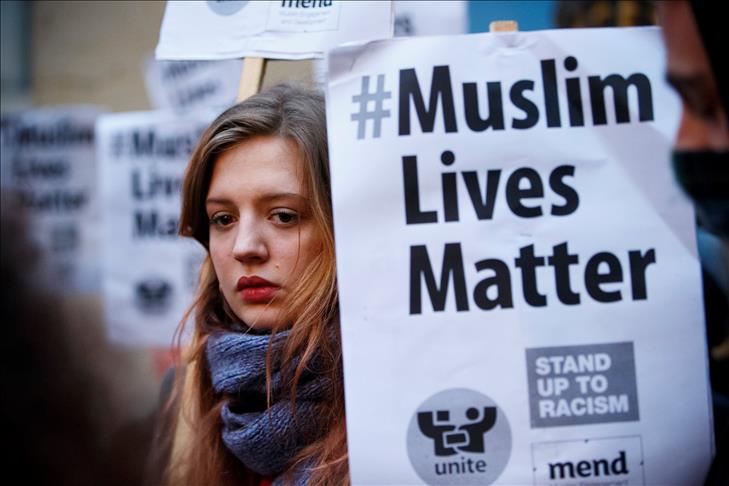
The ‘war on terror ‘ was also taken up by the U.K. both as an ally of America but also spurred on by a series of terrorist attacks in the mainland U.K. by individuals and groups claiming religious motivation for their heinous acts of violence.
The British Muslim community in General but Muslims of Pakistani heritage came under immense scrutiny. For all intent and purposes, their leadership and their institutions came under intense pressure, often accused of not doing enough to curtail the activities of extremists. This despite their repeated denial of having any role in encouraging and supporting extremist tendencies. In fact, the leadership emphatically condemned and distanced itself from the vile acts of violence against the civilians.But it seemed that their voices were either dismissed or not heard. This mattered a great deal in efforts to move forward.
U.K. is home to the largest Pakistani community in Europe, it’s numbers now approaching two millions ( 1.17 millions at 2011 census), making it the second largest of all the immigrant communities and the second largest sub-group of the British Asians. The majority originate from the Azad Kashmir and Punjab regions but also from Khyber Pakhtunkhwa, Sind and Blochistan . The British Pakistans are now into their fourth/ fifth generation settlement, with majority British born of Pakistani heritage.

British Pakistanis continue to maintain and cherish their links with Pakistan through regular visits, investment and political links. The majority have homes and holdings of some descriptions in Pakistan and strong political affiliations to the main political parties in Pakistan. This the reasons for the main political parties – Muslim League, People’s Party, Pakistan Tehrik-e- Insaaf, and others- to have sub branches in the U.K. Therefore, the image of Pakistan abroad hugely impacts on the British Pakistanis, the fate of both is intrinsically linked.
In the wider context, an overwhelming majority of British Pakistanis are of the Muslim faith. Hence, inevitably and rightly, they are also an integral part of the wider British Muslim diaspora .
The Office of National Statistics placed British Muslim population over 3.3 millions in 2018, compared to over 2.5 millions indicated by the 2011 census, making it the second largest faith community in the United Kingdom.
The British Muslim population ethnically and culturally is diverse. British Muslim of Pakistani heritage constitute the single largest ethnic group.
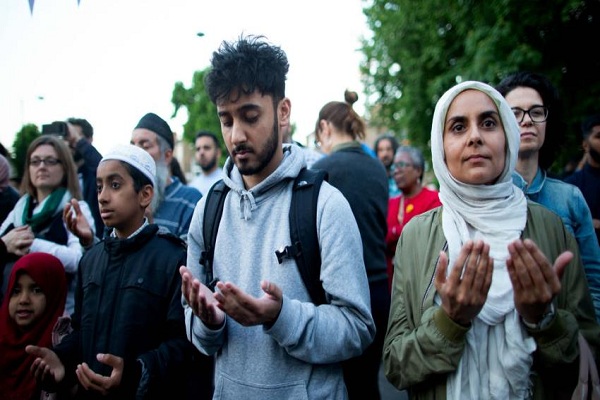
In the twenty years since 9/11, the British Muslims and their institutions have been under intense scrutiny . In this cauldron of suspicion, blame , prejudice and hate , the British Pakistanis, one may say , have suffered the double whammy of prejudice and scrutiny, both on the account of their faith and their heritage. With Pakistan being constantly blamed for not doing enough to curb the extremist activities, it’s citizens , particularly in the U.K. suffered the same fate.This hugely impacted on their image and the treatment.
For British Muslims of Pakistani heritage, there have been and continue to be the following major areas of concern and acute worry:
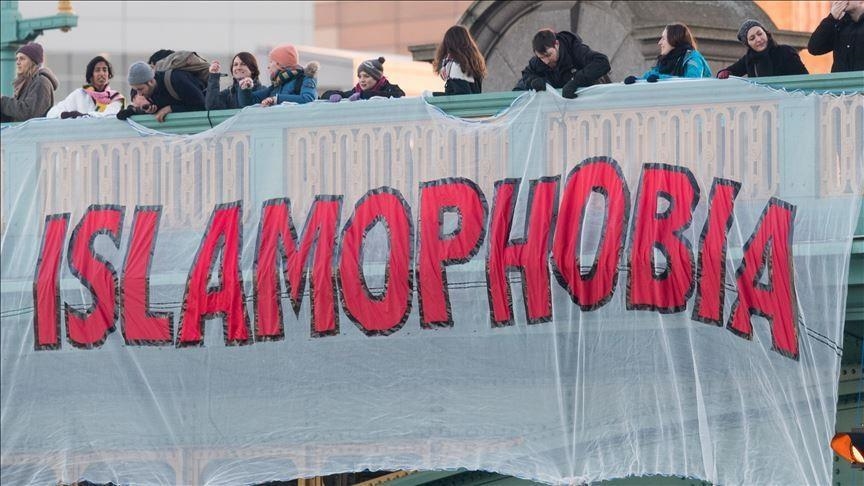
Rise in incidents of hatred against Muslims including Muslims of Pakistani heritage .
This has been particularly true for each terrorist related incident whether elements from within the Muslim community or against the Muslim community. For example, following the Christchurch incident in New Zealand in which 51 Muslim worshippers were gunned down, Tell Mama, a Muslim charity that monitors incidents of hatred against Muslims in the U.K., reported 692% increase in such incidents in the week following the attack. This is perverse given that the victims of this unprovoked atrocity were Muslims. Similar upward trends are noticeable following other incidents in the U.K. of which there is now a long timeline stretching back to 9/11.
ATTACKS ON MUSLIM IDENTITY
Emboldened by the rise of far-right politics across Europe and beyond, mischief makers have identified Islam as a soft target. Previous generations of racists treated all minorities with a generic dislike and disdain. However, particularly since 9/11, those on the extreme right have recognised they can gain greater traction through the vilification of Muslims and Islam. We have witnessed gratuitous targeting of Muslims. The Charlie Hebdo affair in France and subsequent fallout is a case in point. Casual racism has moved from the fringes to the centre ground, perfectly exemplified by the Prime Minister Boris Johnson’s reference to Muslim niqab wearing women as ‘letter boxes’.
It is apparent that the good will which the Muslims including British Pakistanis enjoyed prior to 9:11 has substantially diminished.
THE SANCTITY OF MASAJID IN DISREPUTE DIRECTLY AS RESULT OF ‘ WAR ON TERORR
Masjid play a pivotal role in the lives of the Muslim community and no less so in the Muslim of Pakistani heritage. Masajid are places of worship, education and places of social significance . The role of Masajid cannot be be over emphasised. In this context, it is then easy to understand why the British skyline is increasingly being punctuated by emergence of domes and minarets.
Since 9/ 11, Masajid have become under intense scrutiny from the counter terrorism agencies despite very little evidence of Masajid supported extremist activities. However, Masajid have suffered extensively from misconceptions around their exact role and have been inextricably linked with fanning extremism. One obvious reason for this has been the Prevent strategy – the government’s injudicious counter-terrorism programme, which seemed to have masajid in its crosshairs leading to suspicious overtones about their role in fostering extremism.
Masajid are a visibly identifiable symbol of the Muslim faith and can be an obvious target for hate and islamophobia. There are numerous high and low-level attacks on masajid around the U.K. The attacks on the Finsbury Park Mosque in London and the Al Noor Masjid in Christchurch, New Zealand are powerful reminders of the dangers that lurk.
ATTACKS ON MUSLIM IDENTITY
Emboldened by the rise of far-right politics across Europe and beyond, mischief makers have identified Islam as a soft target. Previous generations of racists treated all minorities with a generic dislike and disdain. However, particularly since 9/11, those on the extreme right have recognised they can gain greater traction through the vilification of Muslims and Islam. We have witnessed gratuitous targeting of Muslims. The Charlie Hebdo affair in France and subsequent fallout is a case in point. Casual racism has moved from the fringes to the centre ground, perfectly exemplified by the Prime Minister Boris Johnson’s reference to Muslim niqab wearing women as ‘letter boxes’.
It is apparent that the good will which the Muslims including British Pakistanis enjoyed prior to 9:11 has substantially diminished.
THE SANCTITY OF MASAJID IN DISREPUTE DIRECTLY AS RESULT OF ‘ WAR ON TERORR
Masjid play a pivotal role in the lives of the Muslim community and no less so in the Muslim of Pakistani heritage. Masajid are places of worship, education and places of social significance . The role of Masajid cannot be be over emphasised. In this context, it is then easy to understand why the British skyline is increasingly being punctuated by emergence of domes and minarets.
Since 9/ 11, Masajid have become under intense scrutiny from the counter terrorism agencies despite very little evidence of Masajid supported extremist activities. However, Masajid have suffered extensively from misconceptions around their exact role and have been inextricably linked with fanning extremism. One obvious reason for this has been the Prevent strategy – the government’s injudicious counter-terrorism programme, which seemed to have masajid in its crosshairs leading to suspicious overtones about their role in fostering extremism.
Masajid are a visibly identifiable symbol of the Muslim faith and can be an obvious target for hate and islamophobia. There are numerous high and low-level attacks on masajid around the U.K. The attacks on the Finsbury Park Mosque in London and the Al Noor Masjid in Christchurch, New Zealand are powerful reminders of the dangers that lurk.
RISING ISLAMOPHOBIA
Islamophobia became a popular discussion point in an ideological debate following 9/11.
Islamophobia is generally understood as referencing fear, hatred of, or prejudice against the adherents of the Islamic faith.
In the year ending March 2020, the figures reported by the British police authorities , 50% of all religious hate crime offences were targeted against Muslims .
Hate crime is defined as ‘any criminal offence which is perceived, by the victim or any other person, to be motivated by hostility or prejudice towards someone based on a personal characteristic.’ This common definition was agreed in 2007 by the police, Crown Prosecution Service, Prison Service
After the Christchurch terrorist attack which killed 51 Muslim worshippers perversely saw 692% increase in Islamophobic incidents as reported by the U.K. based charity Tell Mama which monitors the Islamophobic activities in the U.K.
The same organisation also reported , in 2018, a record number of anti- Muslim incidents that disproportionately targeted Muslim women. The trigger for this seemed to be the terrorist attacks in London and Manchester arena.
Tell Mama also reported in September 2019 that Islamophobic incidents rose by 375% in week after Boris Johnson compared Muslim women wearing niqabs to “ letterboxes “ in his Daily Telegraph column.
The situation elsewhere in Europe is no better. Similar type of situation also persists in France and other European countries.
THE ROLE OF MEDIA
The Media’s role in fanning the Islamophobic activities remains a major concern. The persistent association of terms such as ‘Islamists ‘ with the perpetrators continue to embroil British Muslims in incidents of violence which they vehemently reject and draw a distance from . This unapologetic linking of with with extreme elements and their ill conceived ideologies continues to generate misconceptions and fear about Muslims presence in the U.K. I presume that the situation is no different elsewhere in Europe.
The 2020 report by the Muslim Council of Britain (MCB) into the coverage of Muslims by the British media based on over 230,000 articles published in 31 national online media outlets noted, “ There is significant disparity in the association of “terror” between so-called Muslim and non-Muslim perpetrators: over half of the terms “terrorist”, “terrorism” or “terror” were used with the terms “Islam” or “Muslim” – almost nine times more than when the perpetrator was identified with the terms “far-right”, “neo-Nazi” or “white supremacist”.”
“Between 2015-2019, over half of the terms “terrorist”, “terrorism” or “terror” were used with the terms “Islam” or “Muslim.” This is almost nine times more than with the terms “far-right”, “neo-Nazi” or “white supremacist.”
Despite some mote-able progress by the British Muslims generally but Muslims of Pakistani heritage in particular in business, politics, and charity , the Muslim community ‘s progress continues to be thwarted by the negative perceptions and the rife Islamophobia in the society. This combined with the endemic of racism in the British society resulting in widespread disparities in health, education, job market and definitely putting a strain on community relations, as it has become starkly apparent during the Covid-19 epidemic.
The impact of 9/11 carries on to blight and thwart the progress of British Muslims particularly of British Muslims of Pakistani heritage.

